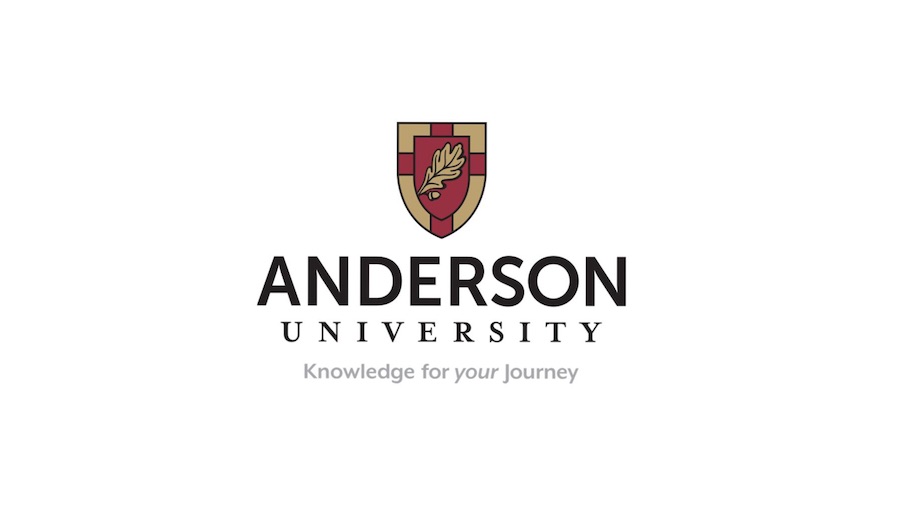The Anderson University College of Education’s Doctor of Education in Leadership and Learning offers the flexibility working professionals need with a concentration in School and Community Leadership and a concentration in Curriculum and Instructional Leadership.
According to Dr. Julie Smart, the program’s director, doctoral students have the option to attend face-to-face at the University Center of Greenville or join remotely. She explained important factors that set the Anderson University Ed.D. program apart from other doctoral programs.
“Most programs are either completely face-to-face or completely online. One of the things that differentiates our Ed.D. is that we are going to have that personal attention for students, whether they are able to come to the classroom or are needing to participate remotely,” Dr. Smart said.
Working in conjunction with the University Center of Greenville, Anderson University has a new “high flex” learning lab, equipped with tracking cameras, state-of-the-art microphones, new Promethean technology, and other supportive technology that allows for a complete integration of face-to-face students with online students.
Treating Doctoral Students as Individuals
Dr. Smart and her colleagues are committed to getting to know doctoral students and their specific goals and objectives in education so they can ensure a program is tailored to each student’s specific goals.
“When you cross the line from master’s into doctoral work, you’re becoming that junior colleague with the faculty at the university. We really want to see the students as our colleagues that are being trained, some of them teaching side-by-side with us one day,” Dr. Smart said. “In a nutshell we have tried to put the types of support in place that honestly students haven’t been able to receive at a larger institution. We want this to be a place where they feel supported and that they can achieve the goals they have with faculty supporting them every step of the way.”
Embedded Dissertation
Unlike many doctoral programs offered at other institutions that put the dissertation at the end, Anderson University’s Ed.D. program has an embedded dissertation. Doctoral students discuss the dissertation on the first night of class and work on it takes place throughout the program.
“We’ve already started working with our students to think about and train them on how to think about how to select a topic and how to think about how their topic will be connected to their overall field,” Dr. Smart said.
“We’re excited to offer a doctoral program using the embedded dissertation model. We truly believe our doctoral program is designed to facilitate success for our doctoral students who are teaching and leading in their schools and communities. This will allow them to complete their degree program and doctorate almost simultaneously in an incredibly efficient manner,” said Dr. Mark Butler, Dean of the Anderson University College of Education.
Concentrations
The School and Community Leadership concentration prepares candidates for leadership roles in K-12 public schools, private schools, educational non-profit organizations, or other non-traditional educational settings. In addition to the core curriculum, preparation in this concentration includes advanced research and study in human resources in education, finance for educational settings, assessment and evaluation for educational effectiveness, and theories of school and community leadership.
The Curriculum and Instructional Leadership concentration prepares candidates to lead curriculum development, innovative learning experiences and instructional best practices at the highest level. Preparation in this concentration will enhance candidates’ skills and/or potential for positions such as instructional coach, instructional coordinator, curriculum designer, or training development manager.
The Ed.D. program prepares students for careers that include training and development manager, instructional coordinator or coach, curriculum director/coordinator, postsecondary education administrator, postsecondary teacher, CEO/executive of non-profit organization and education director in religious settings.
As new doctoral students started the Fall Semester, Dr. Smart commented, “We have a really great span of students from a lot of different areas, a lot of different content areas, we have anywhere from elementary teachers to middle and high school teachers, we have a band director that’s come to get a doctorate with an emphasis on music, so we really just have a wide array of students who are in the program.”
Having recently joined the College of Education, Dr. Smart feels that providing leadership for new doctoral students is a dream job for her.
“Coming to Anderson University has been a great opportunity—to have, with this program, the ability to shape the program in ways that I really feel passionate about—about how educators should be taught how to become scholars, how to become researchers, how to become really impactful in their field,” Dr. Smart said.

